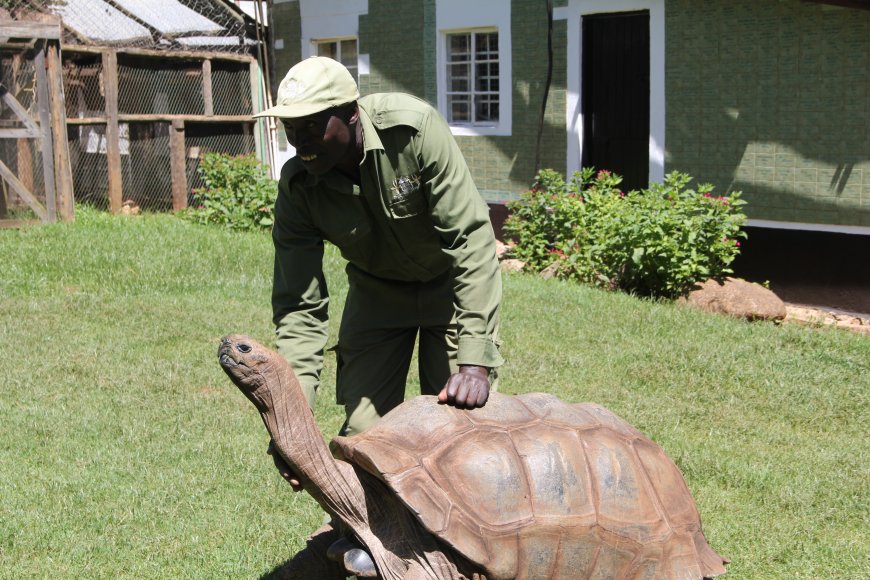Conservationist, 60, determined to protect wildlife despite being trampled by an elephant

Nanyuki, Wednesday, May, 17, 2023
KNA by Muturi Mwangi
“This is a God-given second chance to life,” these are the words of a Nanyuki based-wildlife conservationist on how lucky he was to have escaped death by a whisker from elephants as he protected the world's most endangered species, the Mountain Bongo.
For 18 years, James Muraya aged 60, has survived on an imported modified artificial diaphragm to breath.
Muraya who works at Mount Kenya Wildlife Conservancy animal orphanage in Laikipia County says that despite a brush with death during a run-in with a rogue elephant, it only embodied his passion for wildlife conservation. A task he has vowed to carry on as long as he lives.
On the fateful day in 2005 which Muraya vividly reminisces, he was going on with his normal activities when he encountered the elephants at the conservancy which attacked him and left him for dead.
“We were brought 18 Mountain Bongo from the American zoo, and as we were scaring them away from the Bongo Boma since they were destroying it, one of the bull elephants charged on and I fell on the ground,” narrates Muraya. Boma is a Swahili word loosely translated as homestead.
He says, the elephant didn’t stop there, thinking it had trampled on, it held him with his trunk and threw him up twice before he could be rescued.
“The elephant thought it had trampled on me, but luckily no, it kneeled down and pierced through back up to my lungs and broke them. Due to that, I operate on artificial diaphragm imported from France,” reveals the wildlife conservator.
Muraya, who had since been nicknamed the “Elephant man,” by his peers for surviving that elephant attack ordeal, says that he still loves taking care of the wild animals.
As he guide the press at the conservancy, I can easily tell the passion he has for wild animals by how he is able to tell the history and behaviours of different breeds in the orphanage. He further identifies each animal by name.
Muraya, who is a father of four children, says that wildlife conservation has helped him educate and feed his family and hence calling on poachers to devise alternative ways of generating their livelihood but not destroying the remaining wild animal species.
He further urges the government to impose tough measures to those who found poaching wild animals for the future generation to have a beautiful wildlife heritage to identify with.
Meanwhile, according to Kenya Wildlife Service Laikipia County Senior Warden Ms Rose Malenya, says that human-wildlife conflicts in the region are rife, particularly during dry seasons.
“Human Wildlife Conflict occurs in two ways where humans also harass wildlife which reacts, thereby settling and interfering with their habitat,” notes Malenya.
She points out that with the ongoing rainfall, human-wildlife conflict had reduced, however there were few isolated cases of predation by lion, leopard and hyenas eating livestock.
Courtesy; K.N.A
What's Your Reaction?
































































































































































































































































































